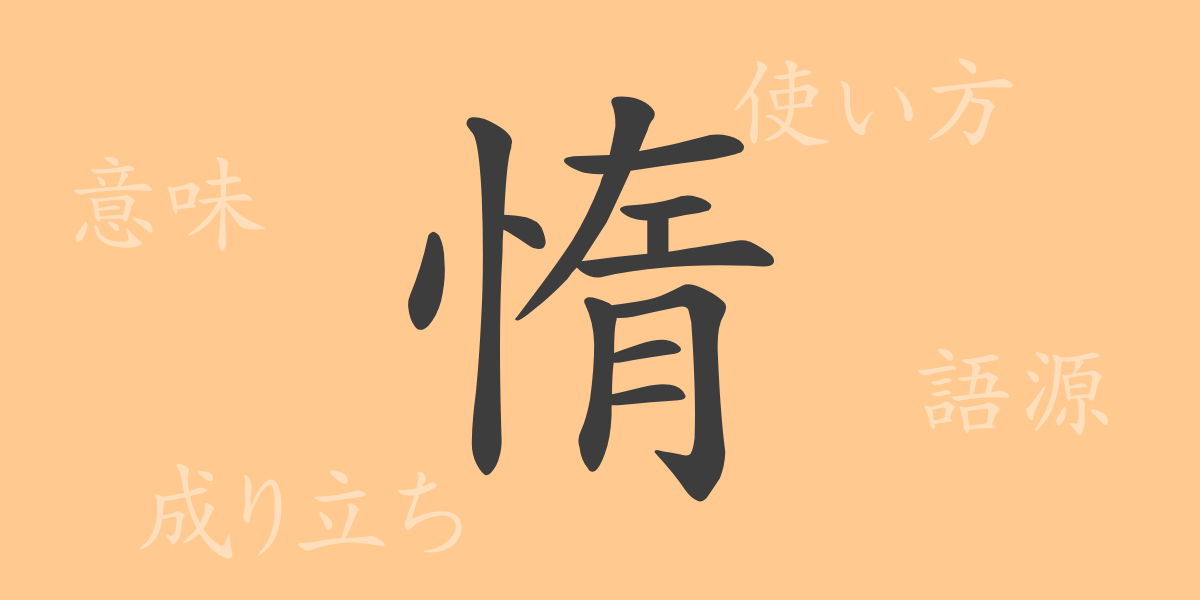Japanese language reflects its richness through Kanji characters, each imbued with profound meanings and usage as idiomatic expressions that vividly reflect Japanese culture. This article delves deeply into “惰” (da), a commonly used Kanji character not often seen in daily life, exploring its origin, meaning, and usage.
Origin of “惰” (da)
The Kanji “惰” consists of the radical “心” (kokoro), representing the heart, and “委” (i), originally denoting leaving things aside, which evolved to mean laziness. Therefore, “惰” has long been used to depict a state of laziness or sluggishness.
Meaning and Usage of “惰” (da)
“惰” means “lazy” or “negligent,” primarily used to denote a negative state lacking in action or diligence. While direct usage of this Kanji in modern business or daily conversations has diminished, it remains prevalent in idiomatic expressions and phrases.
Readings, Stroke Count, and Radical of “惰” (da)
In Japanese, “惰” follows specific readings and writing conventions.
- Readings: On’yomi ‘ダ’ (da), no specific Kun’yomi.
- Stroke Count: It consists of 13 strokes in total.
- Radical: The radical is “心” (kokoro), which relates to the heart or mind.
Idioms and Proverbs Using “惰” (da) and Their Meanings
Idioms and phrases containing “惰” often caution against laziness. For example, “怠惰” (taida) means “laziness” or “lack of diligence,” while “惰性” (dasei) refers to doing things out of habit or momentum, typically in a negative context critiquing behavior or character.
Conclusion on “惰” (da)
Exploring the Kanji “惰” reveals its importance in Japanese, despite its limited everyday usage. This character serves to caution against laziness and promotes diligence, reflecting essential values even in contemporary society. Remembering the spirit of “惰” in daily life encourages maintaining a proactive and positive attitude.

























